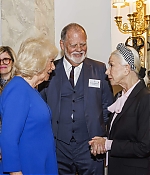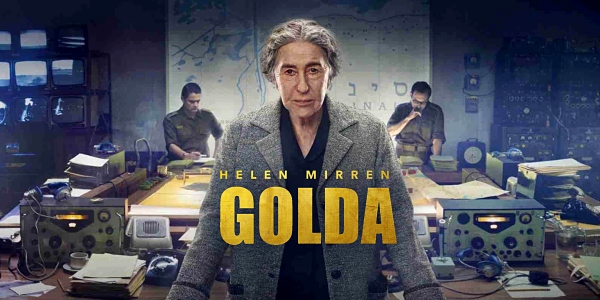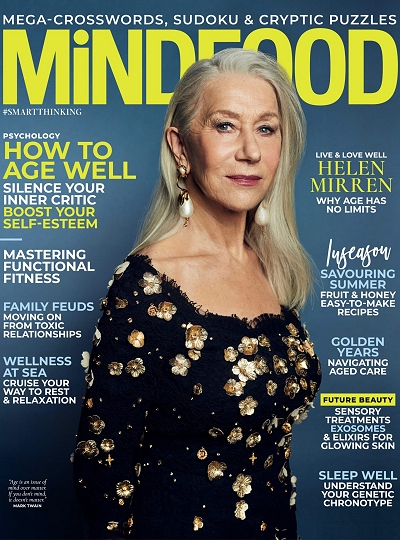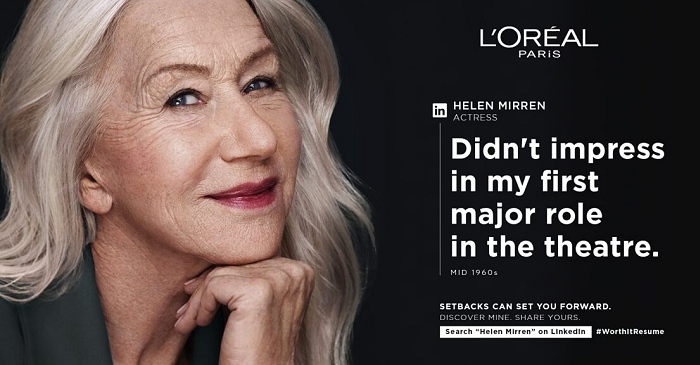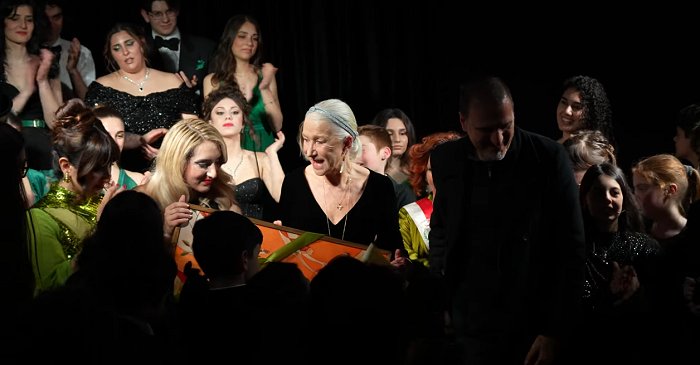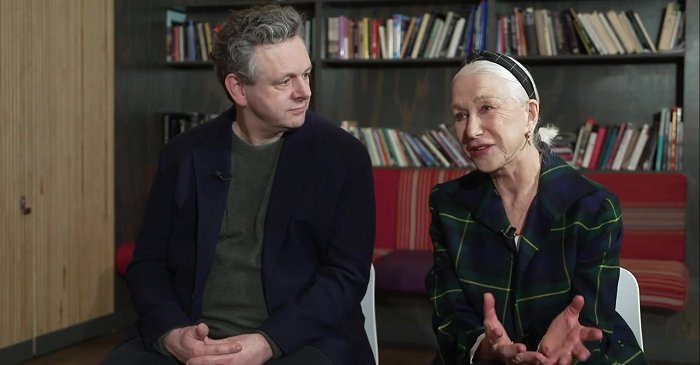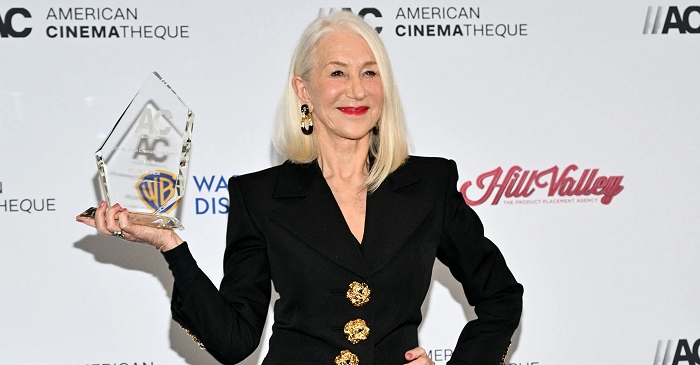
|
Welcome to The Helen Mirren Archives, your premiere web resource on the British actress. Best known for her performances with the Royal Shakespeare Company, "Prime
Suspect" and her Oscar-winning role in "The Queen", Helen Mirren is one of the world's most eminent actors today. This unofficial fansite provides you with all latest
news, photos and videos on her past and present projects. Enjoy your stay.
|
Celebrating
10 years
on the web
|
She loathes chick flicks, adores Russell Brand and sees nothing wrong with plastic surgery. But don’t get Helen Mirren started on Parky…
Despite the formidable height of her lavender platform heels, Dame Helen Mirren breezes into the room with a dancer’s grace. After declaring the view of the Hollywood hotel’s pool “disappointing”, she spots a tray of oversized pastries. “I’m on a diet,” she says glumly. And though she is too well-mannered to have them whisked out of her sight, something in her regal posture makes clear that draping a napkin over the tempting sweets is the only civilised thing to do. The gesture is met with a gracious “thank you”. To the millions who gawped at that famous photo of Mirren’s tanned and toned midriff on a Puglia beach, it may be no surprise that the actress watches her figure. Last year’s topless magazine photo – a bold portrait of her in the bath, unabashed and au naturel – only underscored the fact that her sex appeal has no expiry date. Indeed, as demure as she is on this clear California morning, Mirren delights in a bit of shock and awe. On the talk show circuit, she often tells audiences she used to shop at the Hollywood stripper boutiques down the hill from her house for the cheap five-inch heels she wore to red carpet events. Elsewhere she has shared her love of cocaine, expressed controversial views on gender politics and thanked a female interviewer “for the view” after noticing she wasn’t wearing underwear.
In December, Mirren took the podium before a roomful of Hollywood women, many of them high-profile executives, and chided the industry for catering to “the 18 to 25-year-old male and his penis”, adding impishly, “quite small, I always think.” “She is our punk queen,” says Russell Brand, who got to know Mirren when the two co-starred in the forthcoming remake of the 1981 comedy Arthur. “She’s got a matriarchal authority, but she’s very, very sexy. I would happily lay for hours my head upon her legs and look at her.” Considering her deep fondness for Brand, Mirren just might oblige him. (She pinched a pair of his pants from the Arthur set, claims to occasionally wear them, and plans to have them framed.) The mere mention of his name during our chat brings her to tears. “He’s extraordinary,” she gushes. Today, Mirren sports a pixie haircut, a bright, off-the-rack frock and an endearing fragility. Her usual spiky combativeness is largely absent, even when discussing the punishing reviews of her husband Taylor Hackford’s Love Ranch – a film in which she starred as the madam of a Nevada brothel – and its lack of a UK release. “I thought it was an interesting, good film,” she says, her gaze drifting off. “But it was pretty well savaged by the critics here in America. It was painful. I didn’t get it. It didn’t romanticise the world of a brothel. It was very truthful about it. And I think maybe that was what they didn’t like.”
This naked sort of emotion is a huge part of Mirren’s appeal. She possesses two seemingly incongruent qualities – a glancing imperiousness and a sweet humility. No wonder she got on so well with Brand, a complicated character in his own right. The two actors (and Brand’s Essex-born mother) became friends in between takes on the set of Arthur. Mirren played the stern but soft-hearted servant to Brand’s man-child Arthur. (Brand championed Mirren for the role, which in the original was played by Sir John Gielgud.) “He’s one of a kind Russell, he really is,” she says. “That’s a rare thing nowadays. I was so full of admiration for him. He’s had such awful stuff thrown at him and it’s just so bloody unfair. It just drives me crazy.” She paused to dab at her eyes. As she lifts her latte to her lips, a crude little tattooed star on her hand reveals itself. “He is a naughty boy,” she says, setting the cup in its saucer. “There’s no question about that. But a kind, naughty boy. As many naughty boys are, of course.” Mirren is a master of the tart observation, a biting wit that even in her youth set her apart from the other blonde and buxom beauties crowding stage and screen. She has been cast as an intellectual vixen since her late teens, playing Cleopatra at the Old Vic and during her early years at the Royal Shakespeare Company. She spent many years courting cineastes in art-house fare that rarely made the multiplex, from the scandal-plagued Caligula to the controversial The Cook, The Thief, His Wife & Her Lover.
How does she feel about being perceived as this dreamy, sexy older woman? “It doesn’t feel like anything,” she says, equal parts amused and ambivalent. “I don’t think about it. I don’t consider it. It’s always been with me one way or the other. It’s like the wind blowing past. It was a pain in the butt when I was younger.” She pauses and then, chuckles. “But I don’t mind as much anymore.” To hear her talk, this saucy side took some cultivation. Mirren was a humble Catholic schoolgirl from Leigh-on-Sea in Essex who “didn’t know anything about anything”. She was born Ilenya Mironov, the granddaughter of a Russian nobleman whose fortune disappeared during the Russian Revolution. Her father, though educated for a time in London private schools, supported his family as a cab driver. Her mother was a working-class London girl with some gipsy blood from a family of butchers. Mirren’s great-grandfather was a butcher to Queen Victoria. “I grew up in a middle-class family who were living in a working-class economic situation,” she explains. “It was a real economic struggle for [my parents] and I grew up in a pretty economically deprived, low-income situation. There was always the sense that discourse was important. Education was important. As important for their two girls as it was for their boy.” Mirren has said that her parents were “anti-monarchy”, but clarifies that their disdain was directed at the aristocracy, not the Royals. Mirren has warmed to the idea of the Royal family as a cultural and psychological touchstone, and as she put it, “a good defence against totalitarianism”. She’s cheered by the fact that Prince William chose to marry Kate Middleton, an ordinary girl who also has the extraordinary self-possession that the lifestyle demands. “I love where she comes from and who she is,” Mirren says. “You see them together and they’re easy with each other. They look at each other with genuine interest and love, they make each other laugh. It takes a very special person to step into that world. “I think she had the advantage that Diana didn’t have of a monarchy that’s really moved on. And moved on through Charles, who has been an incredible father to his sons. I have a feeling that he very deliberately did not bring his own children up in the kind of upbringing he had.”
As a teenager, Mirren spent summers waiting tables at her aunt’s Brighton B?&? B yearning for an acting career, yet readying herself for teacher training college. One rainy afternoon, in between shifts, Mirren fled into “a funky, smelly little art cinema” to watch the Antonioni film L’avventura. “You know, for a 16 year-old who’d never been abroad or anything – I never ever forgot it.” Mirren still followed her father’s wishes and attended teaching college, but she never taught. Instead, she landed a spot with the National Youth Theatre and for the next few years she worked simultaneously at a teaching degree she didn’t really want and at a stage career she longed for passionately. As soon as she left college, it seemed the world began to open up for her. Soon Mirren was a rising star at the RSC who’d begun her repertoire of provocative film roles with 1969’s Age of Consent, in which she played the nubile young muse of James Mason’s middle-aged painter. That sexual persona got her noticed but could also be a huge bother, particularly with male critics and chat show hosts. Case in point: that famous mid-Seventies interview with Michael Parkinson, an excruciating encounter now viewable on YouTube. Mirren only recently discovered it online and was impressed to find that at 30 she had enough poise to deflect a barrage of veiled come-ons.
“Outrageous!” she says. “That’s the first talk show I’d ever done. I was terrified. I watched it and I actually thought, bloody hell! I did really well. I was so young and inexperienced. And he was such a f—— sexist old fart. He was. He denies it to this day that it was sexist, but of course he was.” It was around that time that Mirren made an impulsive visit to a palm reader, who told her that she’d find her greatest success after 40; an insight that came as a great relief. Recently Mirren has been outspoken about the dearth of ageing actresses in film. “I resent having witnessed the survival of some very mediocre male actors,” she told the crowd at that meeting of Hollywood female executives, “and the professional demise of the very brilliant female ones.” Don’t some of those female executives deserve some of the blame for this phenomenon? “I think women as an audience have to take responsibility,” she says. But film executives, Mirren admits, are just being pragmatic. “They have to be. It’s the film industry in America. It’s not the film art. It’s not the world of art. It can be very artistic. But a film, unlike a painting, or even a piece of music, certainly a novel, is an incredibly expensive thing to produce.
“And they know that the people that drive cinema-going are young men and their girlfriends. But it’s the young men who choose the movie. Girls go out together to see a chick flick or something.” Mirren takes a breath: “I loathe, I hate, chick flicks.” Of course, she has cut her own path independent of the whims of the mass market. Mirren has worked feverishly in her sixties, having just completed one of the busiest years of her career. She opened 2010 with another Oscar nomination, for her depiction of Leo Tolstoy’s wife Sofya in The Last Station. And she went on to make a half-dozen more films, a mix of big-budget features and indie dramas. She says that winning the Oscar for The Queen, in 2008, “just suddenly popped me out there. I was asked to do films that I really wouldn’t have been asked to do before.”
In the next few weeks she’ll be almost unavoidable. In the emotionally charged period thriller The Debt she plays a retired Mossad agent alongside Tom Wilkinson. Then comes Julie Taymor’s adaptation of Shakespeare’s The Tempest, in which Mirren portrays exiled sorcerer Prospero as a woman with – as Russell Brand, who co-stars with her in this as well, put it – “the undeniable ability to devour and destroy”. Mirren proposed the gender switch to Taymor herself when the two women ran into each other at an industry function. “I wonder if when Shakespeare was writing, if they’d had actresses, if he wouldn’t have actually written that role for a woman,” she says of Prospera. “It’s amazing how it fits a woman so perfectly. Nothing has to change. The bitterness. The anger. The betrayal with her brother. With a woman, it was sort of exacerbated by the potential gender war.”
But first Mirren appears in Brighton Rock, the handsome but divisive adaptation of the 1938 Graham Greene novel. The film updates the action to 1964 during the riots between the Rockers and the Mods. Even Mirren was surprised by writer-director Rowan Joffe’s finished work. “You didn’t realise what his vision was while he was shooting,” she says. “He takes this seedy little story of seedy little people in seedy little rooms, and he makes it big and operatic and grandiose. I love that. It could have all been documentary-like or a bit kitchen sinky, and all rough and tough. And the English do that very, very well. But he didn’t. He chose to make it operatic and theatrical and big.” Mirren plays Ida, a curvy redhead with a tantalising past. She crafted her character independent of its origins – or even Joffe’s own notion of it – studying old photos of Sophia Loren from the 1960 classic Two Women to create “that sort of strong, Italian, matriarchal kind of figure”. It’s a supporting role, but Mirren brings power to it. And she has the hourglass figure down pat.
From that film, Mirren moved on to something rather more distant from bosomy glamour. In Istvan Szabo’s forthcoming adaptation of the acclaimed Hungarian novel The Door, she plays an inscrutable and odd Hungarian housekeeper whose own intense suffering is eased by a friendship with the writer who employs her. That probably won’t open until next year and it will be Mirren’s last on-screen performance for a while. She has taken a few months off to relax, although she hopes to return to the theatre. By any measure, Mirren is in a comfortable position, dividing her time between her homes in the Hollywood Hills and London. At 65, she’s also that rare thing: an actress who has kept both her body and her career hot without going under the knife. Has she never felt the pressure to have a nip and tuck? “I would love to do that!” is her surprising answer. “Maybe, who knows, in my future. I don’t think one should be: ‘You must not do that! Oh, I’d never do that.’ All that rubbish. I think whatever makes people feel happy without… I think a lot of people absolutely physically destroy themselves. You see this a lot here don’t you?”
She describes a recent encounter in Los Angeles with two women who had evidently indulged in some cosmetic enhancements. Their lips made them look like “huge platypuses or ducks or something”, Mirren says, turning her own lips inside out to illustrate. “I went: ‘God, look at those two Los Angeles women!’ And I heard them talking and they both had complete British accents! Oh dear! “I do think people should do whatever makes them happy. Even those ladies with those ridiculous lips. If they look at themselves in the mirror and they go: ‘Wow! I look good!’ So what?”

